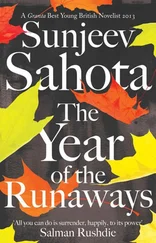John Abbott - Ferdinand De Soto, The Discoverer of the Mississippi
Здесь есть возможность читать онлайн «John Abbott - Ferdinand De Soto, The Discoverer of the Mississippi» — ознакомительный отрывок электронной книги совершенно бесплатно, а после прочтения отрывка купить полную версию. В некоторых случаях можно слушать аудио, скачать через торрент в формате fb2 и присутствует краткое содержание. Жанр: foreign_antique, foreign_prose, на английском языке. Описание произведения, (предисловие) а так же отзывы посетителей доступны на портале библиотеки ЛибКат.
- Название:Ferdinand De Soto, The Discoverer of the Mississippi
- Автор:
- Жанр:
- Год:неизвестен
- ISBN:нет данных
- Рейтинг книги:3 / 5. Голосов: 1
-
Избранное:Добавить в избранное
- Отзывы:
-
Ваша оценка:
- 60
- 1
- 2
- 3
- 4
- 5
Ferdinand De Soto, The Discoverer of the Mississippi: краткое содержание, описание и аннотация
Предлагаем к чтению аннотацию, описание, краткое содержание или предисловие (зависит от того, что написал сам автор книги «Ferdinand De Soto, The Discoverer of the Mississippi»). Если вы не нашли необходимую информацию о книге — напишите в комментариях, мы постараемся отыскать её.
Ferdinand De Soto, The Discoverer of the Mississippi — читать онлайн ознакомительный отрывок
Ниже представлен текст книги, разбитый по страницам. Система сохранения места последней прочитанной страницы, позволяет с удобством читать онлайн бесплатно книгу «Ferdinand De Soto, The Discoverer of the Mississippi», без необходимости каждый раз заново искать на чём Вы остановились. Поставьте закладку, и сможете в любой момент перейти на страницу, на которой закончили чтение.
Интервал:
Закладка:
There was at this time, about the year 1521, an Indian chief by the name of Uracca, who reigned over quite a populous nation, occupying one of the northern provinces of the isthmus. He was a man of unusual intelligence and ability. The outrages which the Spaniards were perpetrating roused all his energies of resentment, and he resolved to adopt desperate measures for their extermination. He gathered an army of twenty thousand men. In that warm climate, in accordance with immemorial usage, they went but half clothed. Their weapons were mainly bows, with poisoned arrows; though they had also javelins and clumsy swords made of a hard kind of wood.
The tidings of the approach of this army excited the greatest consternation at Darien. A shower of poisoned arrows from the strong arms of twenty thousand native warriors, driven forward by the energies of despair, even these steel-clad adventurers could not contemplate without dread. The Spaniards had taught the natives cruelty. They had hunted them down with bloodhounds; they had cut off their hands with the sword; they had fed their dogs with their infants; had tortured them at slow fires and cast their children into the flames. They could not expect that the natives could be more merciful than the Spaniards had been.
Don Pedro, instead of waiting the arrival of his foes, decided to assail the army on its march, hoping to take it by surprise and to throw consternation into the advancing ranks. He divided his army of attack into two parties. One division of about one hundred men, he sent in two small vessels along the western coast of the isthmus, to invade the villages of Uracca, hoping thus to compel the Indian chief to draw back his army for the defence of his own territories. This expedition was under the command of General Espinosa.
The main body of the Spanish troops, consisting of about two hundred men, marched along the eastern shore of the isthmus, intending eventually to effect a junction with the naval force in the realms of the foe. The energetic, but infamous Francisco Pizarro, led these troops. A very important part of his command consisted of a band of dragoons, thirty or forty in number, under the leadership of De Soto. His steel-clad warriors were well mounted, with housings which greatly protected their steeds from the arrows of the natives.
The wary Indian chieftain, who developed during the campaign military abilities of a high order, had his scouts out in all directions. They discerned in the distant horizon the approach of the two vessels, and swift runners speedily reported the fact to Uracca. He immediately marched with a force in his judgment sufficiently strong to crush the invaders, notwithstanding their vast superiority in arms.
The Spaniards entered a sheltered bay skirted by a plain, which could be swept by their guns, and where the Indian warriors would have no opportunity to hide in ambush. Uracca allowed the Spaniards to disembark unopposed. He stationed his troops, several thousand in number, in a hilly country, several leagues distant from the place of landing, which was broken with chasms and vast boulders, and covered with tropical forest. Here every Indian could fight behind a rampart, and the Spaniards could only approach in the scattered line of skirmishers. The proud Spaniards advanced in their invading march with as much of war's pageantry as could be assumed. They hoped that nodding plumes and waving banners, and trumpet peals, would strike with consternation the heart of the Indians.
Uracca calmly awaited their approach. His men were so concealed that Espinosa could form no judgment of their numbers or position. Indeed he was scarcely conscious that there was any foe there who would venture to oppose his march. Accustomed as he was to ride rough shod over the naked Indians, he was emboldened by a fatal contempt for the prowess of his foe. Uracca allowed the Spaniards to become entangled in the intricacies of rocks and gullies and gigantic forest trees, when suddenly he opened upon them such a shower of poisoned arrows as the Spaniards had never encountered before. The touch of one of these arrows, breaking the skin, caused immediate and intense agony, and almost certain death. The sinewy arms of the Indians could throw these sharp-pointed weapons with almost the precision and force of a bullet, and with far greater rapidity than the Spaniards could load and fire their muskets.
Espinosa found himself assailed by a foe outnumbering him ten or twenty to one. The air was almost darkened with arrows, and every one was thrown with unerring aim. The rout of the Spaniards was almost instantaneous. Several were killed, many wounded. In a panic, they turned and fled precipitately from the trap in which they had been caught. The natives impetuously pursued, showing no quarter, evidently determined to exterminate the whole band.
It so happened that De Soto, with his dragoons, had left Pizarro's band, and in a military incursion into the country, was approaching the bay where Espinosa had landed his troops. Suddenly the clamor of the conflict burst upon his ear – the shouts of the Indian warriors and the cry of the fugitive Spaniards. His little band put spurs to their horses and hastened to the scene of action. Very great difficulties impeded their progress. The rugged ground, encumbered by rocks and broken by ravines, was almost impassable for horsemen. But the energy of De Soto triumphed over these obstacles, even when the bravest of his companions remonstrated and hesitated to follow him. At length he reached the open country over which the Spaniards were rushing to gain their ships, pursued by the Indians in numbers and strength which seemed to render the destruction of the Spaniards certain.
The natives stood in great dread of the horses. When they saw the dragoons, glittering in their steel armor, come clattering down upon the plain, their pursuit was instantly checked. Espinosa, thus unexpectedly reinforced, rallied his panic-stricken troops, and in good order continued the retreat to the ships. De Soto with his cavalry occupied the post of danger as rear-guard. The Indians cautiously followed, watching for every opportunity which the inequalities of the ground might offer, to assail the invaders with showers of arrows. Occasionally De Soto would halt and turn his horses' heads towards the Indians. Apprehensive of a charge, they would then fall back. The retreat was thus conducted safely, but slowly.
The Spaniards had advanced many leagues from the shores of the Pacific. They were now almost perishing from hunger and fatigue. Indian bands were coming from all directions to reinforce the native troops. The sun was going down and night was approaching. All hearts were oppressed with the greatest anxiety. Just then Pizarro, with his two hundred men, made his appearance. He had not been far away, and a courier having informed him of the peril of the Spaniards, he hastened to their relief. Night with its gloom settled down over the plain, and war's hideous clamor was for a few hours hushed. The morning would usher in a renewal of the battle, under circumstances which caused the boldest hearts in the Spanish camp to tremble.
In the night Generals Espinosa and Pizarro held a council of war, and came to the inglorious resolve to steal away under the protection of darkness, leaving Uracca in undisputed possession of the field. This decision excited the indignation of De Soto. He considered it a disgrace to the Spanish arms, and declared that it would only embolden the natives in all their future military operations. His bitter remonstrances were only answered by a sneer from General Espinosa, who assured him that the veteran captains of Spain would not look to his youth and inexperience for guidance and wisdom.
At midnight the Spaniards commenced their retreat as secretly and silently as possible. But they had a foe to deal with who was not easily to be deceived. His scouts were on the alert, and immediate notice was communicated to Uracca of the movements of the Spaniards. The pursuit was conducted with as much vigor as the flight. For eight and forty hours the fugitives were followed so closely, and with such fierce assailment, that large numbers of the rank and file perished. The officers and the dragoons of De Soto, wearing defensive armor, generally escaped unharmed. The remnant at length, weary and famine-stricken, reached their ships and immediately put to sea. With the exception of De Soto's dragoons, they numbered but fifty men. Deeply despondent in view of their disastrous campaign, they sailed several leagues along the western coast of the isthmus towards the south, till they reached a flourishing Indian village called Borrica. Conscious that here they were beyond the immediate reach of Uracca's avenging forces, they ventured to land. They found all the men absent. They were probably in the ranks of the native army.
Читать дальшеИнтервал:
Закладка:
Похожие книги на «Ferdinand De Soto, The Discoverer of the Mississippi»
Представляем Вашему вниманию похожие книги на «Ferdinand De Soto, The Discoverer of the Mississippi» списком для выбора. Мы отобрали схожую по названию и смыслу литературу в надежде предоставить читателям больше вариантов отыскать новые, интересные, ещё непрочитанные произведения.
Обсуждение, отзывы о книге «Ferdinand De Soto, The Discoverer of the Mississippi» и просто собственные мнения читателей. Оставьте ваши комментарии, напишите, что Вы думаете о произведении, его смысле или главных героях. Укажите что конкретно понравилось, а что нет, и почему Вы так считаете.












